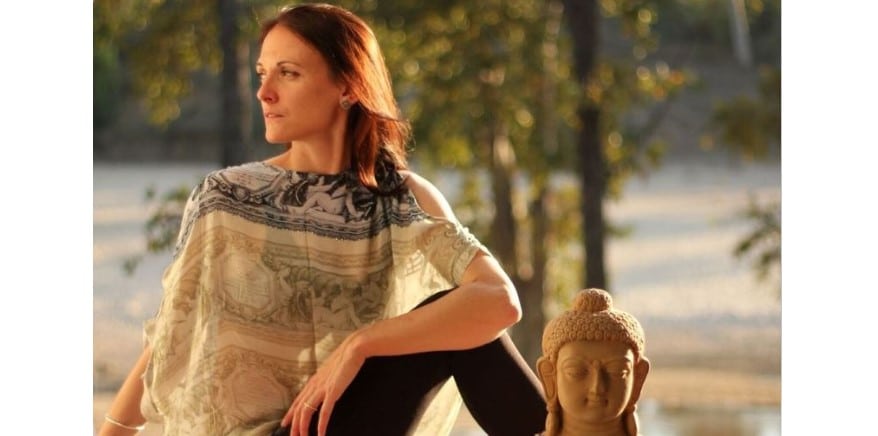Expats
Expat Voice: At Home in a Tribal Village

Isabelle Karan moved from the pristine Switzerland to the lush surroundings of Kanha National Park, and found her home.
“I and my friends arrived in Mumbai in the middle of the night and checked into our hotel. When I woke up and opened the window and saw the city, I felt like I was home, a feeling I never felt my whole life even while I was living with my parents,” says Isabelle Karan about her first visit to India in 2000.
Isabelle, who belongs to Switzerland, made three trips to India before she decided to settle in the country. “The endless possibilities here, and my friends is something that always brought me back,” she reveals. Now, Isabelle has more local friends than expats. “The only time I socialize with my people is when I go back home to Switzerland,” she says.
The 40-year-old former nurse lives at village Kuthwahi in the Mandla district of Madhya Pradesh with her husband Karan, who is from Mumbai. She talked to Little India about the transition from Switzerland to India, and from the country’s financial capital to a rural location.
New Place, New Life
I volunteered for an NGO for nine months in Mumbai during 2001 and when I returned to India in 2006, I met my husband, Karan Modi. We decided to move to the Kanha National Park a couple of years later, where we run an eco-lodge.

Isabelle with her husband Karan Modi.
Karan and I always wanted to live in a peaceful environment where we could be in sync with nature. That is when we thought about building an eco-lodge from scratch. We only have four cottages, because the more the people, the more supplies you need and it destroys the natural environment.
Helping Tribal Women
I started a social enterprise called Hathi, which teaches women how to stitch clothes, bed covers and bags. The products are sold at the lodge or on the website, with the sale proceeds going back to the community. We also help women with ways to maintain menstrual hygiene, and have come up with cotton sanitary napkins that can be reused over 6-7 months before they have to be disposed. When I started communicating with them, none of the women wanted to talk about menstrual hygiene. In fact, when I asked how many of them have periods, no one raised a hand.
Building Trust and Relationship
It is not easy to forge bonds with the locals here, since they come across many foreigners who come and meet them, but the relationships are short-lived. We had to form close ties with them because we are handicapped without them.
I am like an illiterate for the people here, who does not know how to make my own fire, or build my own house.
Over the years we have developed a great rapport in the community. We feel like a part of the village now.
Home, Away From the World
We knew we were going to be isolated from the rest of the world. We didn’t have access to the internet for some time, and were cut off from our friends and family. So the first few years were the hardest.

It was easier for my husband because he could speak the language and knew a lot more than I did about the people. But I was linguistically, socially and culturally isolated for a couple of years before I learned the language and the way of living.
The only time we go back to the city is during the off season when the lodge is closed. Sometimes I go back to Switzerland to meet my family and friends during that time.
I love my life here and now I tell people, “I am going home” when I am coming back to Kanha.
As soon as I wake up I can witness a beautiful sunrise, with lush green trees and birds chirping. At night when I sleep, I hear the jackals howling, and surprisingly now I don’t find it scary because we are accustomed to this life. There is nowhere on earth where I could find a place like this.
The interview has been condensed and edited.
Expat Voice is regular column on expats in India. Email us at expat@littleindia.com to nominate yourself or another expat for the column.




You must be logged in to post a comment Login